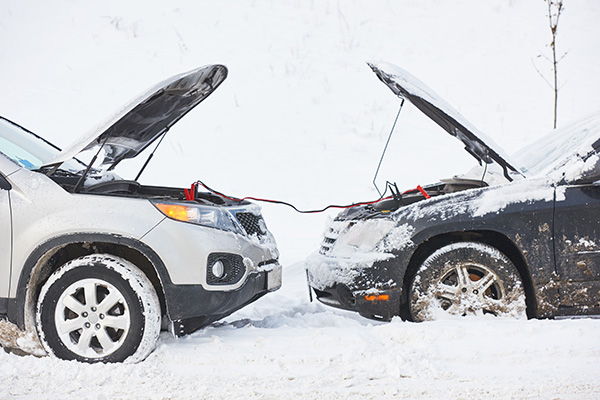
Winter brings frosty mornings, icy roads, and shorter days. While the colder months have their charm, they also come with challenges for your vehicle. Extreme weather can take a toll on its performance, making it necessary to stay ahead of potential problems. Wondering what could go wrong? We'll share the most common car issues you should keep an eye on during the winter season and how to tackle them effectively.
Battery Troubles
Ever tried starting your car on a freezing morning only to be met with silence? Your battery could be to blame. Low temperatures slow down the chemical reactions inside the battery, reducing its ability to hold a charge. This is especially true for older batteries, which struggle to deliver enough power to crank the engine in the cold.
Keep an eye on signs of a weak battery, like dim headlights or a sluggish start. If your battery is over three years old, consider getting it tested before winter hits. Investing in a portable jump starter or keeping jumper cables handy is also a smart move.
Tire Performance in the Cold
Your tires are your first line of defense on icy or snowy roads. But did you know that cold weather can cause tire pressure to drop? For every 10°F decrease in temperature, tire pressure can drop by about 1 psi, which affects your traction and handling.
Underinflated tires wear unevenly and can compromise your safety, especially in slippery conditions. Check your tire pressure regularly and inflate them to the manufacturer’s recommended levels. If you frequently face snow or ice, consider switching to winter tires for better grip and performance.
Frozen Fluids
Your car relies on a variety of fluids to function, and freezing temperatures can wreak havoc on them. Engine oil thickens in the cold, making it harder for it to circulate and lubricate the engine. Windshield washer fluid and antifreeze can also freeze if they’re not rated for low temperatures.
To prevent issues, make sure you’re using winter-grade oil and check your coolant levels before the season starts. Opt for windshield washer fluid designed to withstand freezing temperatures so you’re not caught off guard with an icy windshield when visibility matters most.
Wiper and Defroster Woes
Clear visibility is non-negotiable in winter, yet frost, ice, and snow can quickly obscure your windshield. Old or worn-out wiper blades struggle to handle the extra workload, leaving streaks or missing patches altogether.
Replace your wiper blades at the start of winter and keep your windshield washer fluid reservoir full. Don’t forget to check your defroster and heater to ensure they’re working correctly. A malfunctioning defroster can lead to foggy or frosted windows, creating a dangerous situation on the road.
Winter’s Hidden Enemy
Road salt is essential for keeping roads safe in icy conditions, but it’s not so kind to your car. Salt accelerates rust formation, especially on the undercarriage, wheel wells, and exhaust system. Over time, rust can cause serious structural damage.
Combat rust by washing your car regularly and paying special attention to the undercarriage. Applying a protective wax or sealant before winter can also help shield your car’s paint and metal components from corrosion.
Frozen Door Locks and Handles
Have you ever grabbed your car door handle only to find it frozen shut? Or struggled with a lock that refuses to turn? Freezing temperatures can cause moisture to seep into locks and handles, making them unusable.
A simple fix for frozen locks is using a lock de-icer or spraying a small amount of rubbing alcohol. For frozen handles, gently pour warm (not hot) water over the area to melt the ice. Applying a silicone spray to seals and locks beforehand can help prevent them from freezing in the first place.
A Chilly Surprise
A working heater isn’t just about comfort—it’s also crucial for safety. The heater core, which warms the air blown into your cabin, can fail due to clogs or leaks. A faulty heater core can leave you shivering and struggling with a fogged-up windshield.
If you notice sweet-smelling steam in your cabin, a greasy film on your windshield, or fluctuating cabin temperatures, your heater core might be the issue. Address these problems promptly to avoid being left in the cold.
Prepare for Winter Driving
Preparation is key to avoiding winter car troubles. Regular maintenance, inspections, and a proactive approach can save you time, money, and stress during the colder months. A professional inspection is always a good idea if you’re unsure about your car’s readiness.
Stay ahead of winter car troubles with a maintenance visit to Don Lee's Tire & Auto. Contact us now to book your appointment!